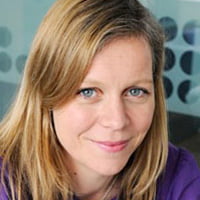Moore bites back at UK government
Charlotte Moore hit back at government criticism of the BBC as she unveiled her vision and first commissions in her recently expanded role as controller of the pubcaster’s TV channels and iPlayer.

Charlotte Moore
Moore, formerly controller of BBC1, had her remit widened at the turn of the year to include oversight of all the BBC’s linear channels and iPlayer content.
She used her first speech in the new role, given at a specially arranged event in London last night, to rail against criticism from UK secretary of state for culture, media and sport John Whittingdale, who said last week that BBC1 had become “less distinctive” in recent years.
This comment continued a pattern of attack from the current Conservative government on the UK pubcaster. Whittingdale previously waded into a debate about whether BBC1 should compete for international formats, while the corporation has also been made to pick up the tab for free TV licences for over-75s.
Moore said last night: “Let me say one thing loud and clear: I don’t recognise, and more importantly the public doesn’t recognise, what the secretary of state said about BBC1 last week.
“It’s not my job to get involved in political debate, but it is my job to make sure the BBC offers great, distinctive programmes that are both high quality and popular. I feel compelled to comment on the suggestion that BBC1 has become less distinctive in recent years. Ofcom’s data, backed up by our own, shows that BBC1 is the most distinctive popular channel on UK TV.”
Moore pointed to the recent scheduling of drama such as The Night Manager and War and Peace as well as Attenborough and the Giant Dinosaur and a forthcoming set of shows for National Autism Week to highlight her point.

John Whittingdale
“The secretary of state quoted a report saying a more distinctive BBC1 would have a smaller audience, but I’ve found the more ambitious and pioneering we are, the more audiences reward us, and shouldn’t we want that?” she continued.
“If programmes are distinctive, don’t we want people watching them? We’re here to make the good popular and the popular good. Why would I steer the BBC down a path where we make the good unpopular? It would be the public who lose out. Popular and distinctive television belong together.”
New BBC1 commissions announced at last night’s event include six-part relationship drama Wanderlust from Drama Republic; 90-minute one-off drama Our Loved Boy, about the murder of eight-year-old Londoner Damilola Taylor, from Minnow films; and factual drama Henry VIII’s Six Wives (3×60’), from Wall to Wall South.
Moore promised to be more open, collaborative and agile during the commissioning process to make life simpler for producers and talent.
There was also thinly veiled criticism of the records of Janice Hadlow and Kim Shillinglaw, the previous two controllers of BBC2. Shillinglaw lost her job as part of the reshuffle that saw Moore’s remit widened.
Moore said: “I love BBC2. I’ve thought long and hard about its values. I believe it has a special, unique role to play in broadcasting and, when it’s true to its DNA, I believe it’s unbeatable.
“I want to make BBC2 confident again. I want to make sure it’s more distinctive from BBC1. I want to give BBC2 a much greater sense of identity. I want to commission programmes that challenge the status quo. It’s going to be lean-in, not lean-back television.”
She promised to put factual at the heart of the channel again and to that end has greenlit three one-off films from Sue Bourne, Fergus O’Brien and Nick Broomfield that “will bring back the director’s voice to BBC2.”
The Bourne project looks at people who have been told they only have a short time left to live, while Broomfield is profiling the life and death of US singer Whitney Houston.













.jpg)




























